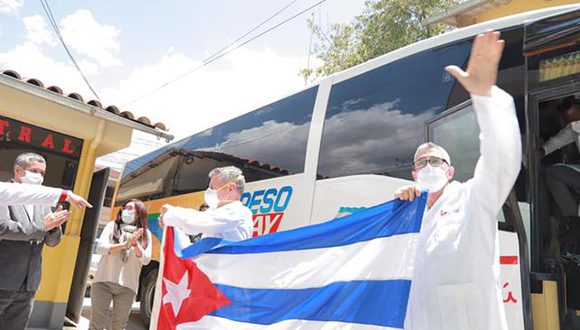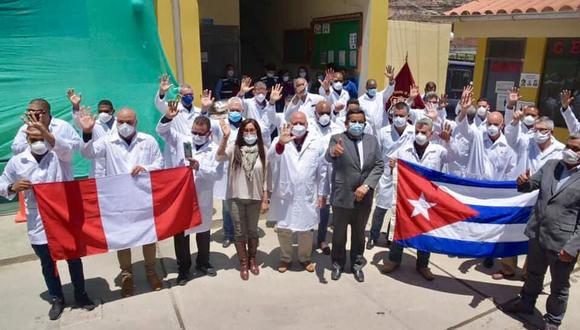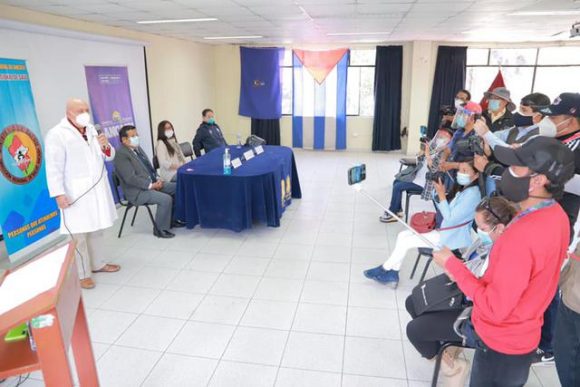Cuban doctors make history again in the Peruvian Andes

Reception of Cuban doctors in Huaraz. Photo: Peru21
A group of Cuban health professionals completed their first week of work against Covid-19 in this city in the Andes of northern Peru, which could well be considered the capital of solidarity between both countries.
The 27 Cubans re- enact the altruism of the pioneers of Cuban medical solidarity with Peru, who arrived half a century ago in Huaraz to save lives among the rubble of the city devastated by an earthquake in 1970.
That expedition brought 150,000 blood donations and left six hospitals built by builders from the island, centers that are still in operation, with some modifications.
With this precedent, it was not surprising that the new wave of solidarity arriving from the Caribbean was warmly received by the health authorities of the Ancash region – of which Huaraz is the capital – upon its arrival from the city of Chimbote, the main one on the coast. from Áncash and where they worked since last June.
The Cubans arrived with some concern about “soroche”, as altitude sickness is called in Quechua , since Huaraz is at 3,552 meters above sea level; but the precautions taken made them not affected or hardly felt the usual discomforts in people who come from the plain.

The brigade is made up of 27 health professionals from the largest of the Antilles. Photo: Peru21
Raudel Vargas, head of the brigade of 87 professionals who also cooperate with the fight against coronavirus in the southern regions of Arequipa, Ayacucho and Moquegua, expressed the satisfaction of his colleagues for the affectionate welcome to this sunny city surrounded by snow-capped mountains, called “The Peruvian Switzerland”.
At the head of the group arrived in Huaraz, Vargas said that the group arrived with the decision to contribute with their efforts, together with dedicated Peruvian professionals, to the fight against the pandemic, as they did in Chimbote.
“We have come to insert ourselves in the health system to work in a joint and integrated way, with a lot of heart and based on the most important thing, which is the health of the people,” he added. He informed Prensa Latina that the group has 11 of its members in the Víctor Ramos Guardia Regional Hospital and the other 16 in the Huaylas Sur Health Network, which includes the Huarupampa, Nicrupampa and Palmira micro-networks.
Those assigned to the aforementioned hospital “were received in a very respectful and cordial manner by the management of the center,” commented doctor Mario Héctor Almeida in one of his chronicles about the Peruvian experience.
“The Huaracinos insisted on giving us a good first impression. They looked frank and open in their speeches to make us feel at home,” he added.
He considered that it has been a week of “discoveries, new experiences, incorporation into services, greasing the machine and engaging in meeting new challenges.”
Almeida also stressed that Peruvian colleagues “have given us the confidence to work together in the effort to save as many lives as possible.”

Press conference offered by the medical brigade. Photo: Peru 21
(Taken from Prensa Latina)


